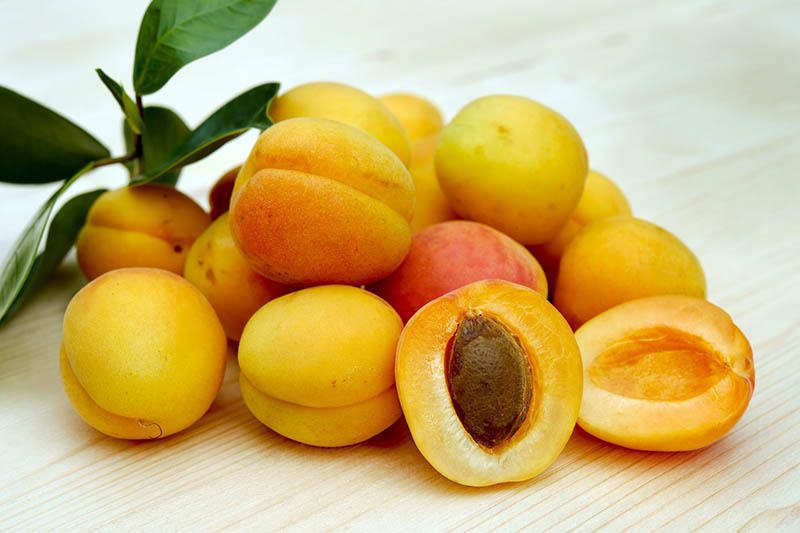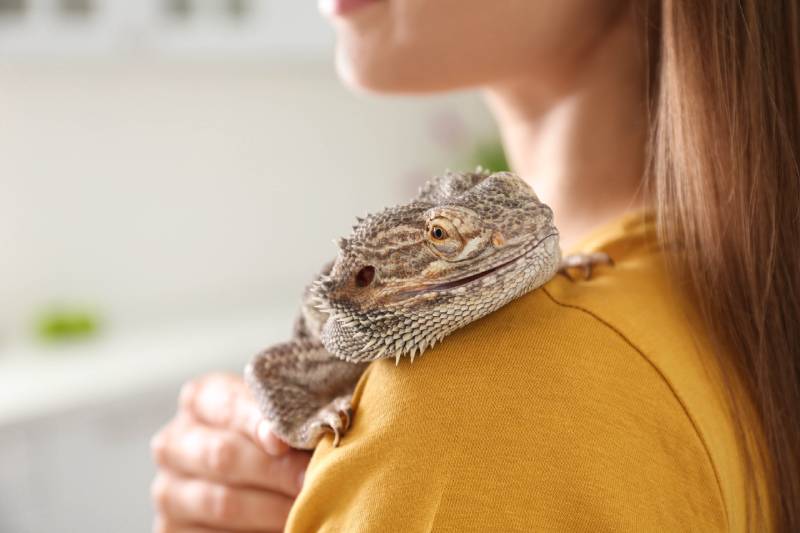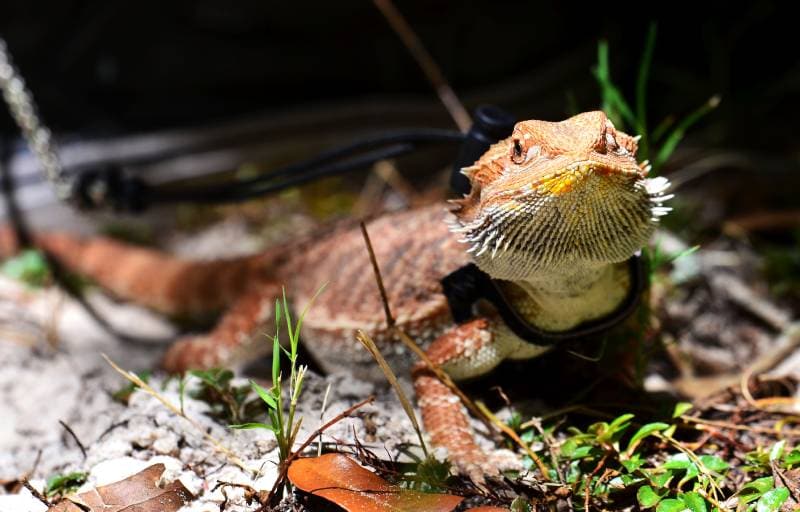Can Bearded Dragons Eat Clovers? Vet Approved Facts & FAQ
By Kit Copson
Updated on
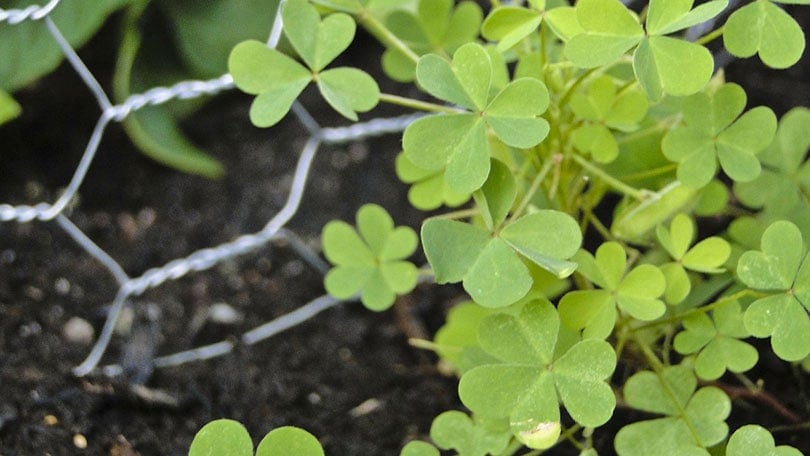
The humble clover has long been a symbol of good luck, but just how lucky is it if your Bearded Dragon munches on these greens? Bearded Dragons can eat clovers; in fact, they’re a popular green of choice for feeding, but only pesticide-free clovers should be fed.
In this guide, we’ll dive into this further and share what a healthy Beardie’s diet looks like.
Are Clovers Safe for Bearded Dragons?
Yes, clovers are safe for Beardies as long as they haven’t come into contact with pesticides. This can make things tricky if you’re unsure whether or not pesticides have been used in the area where the clovers are. In this instance, we’d say don’t take the risk and stick to plant matter that you know for sure is free of pesticides.
That said, if you’ve got some clover that you’re sure is pesticide-free, feel free to let your Beardie munch away! Experts—including vets at VCA Animal Hospitals and the RSPCA—recommend feeding clover along with several other greens and veggies.
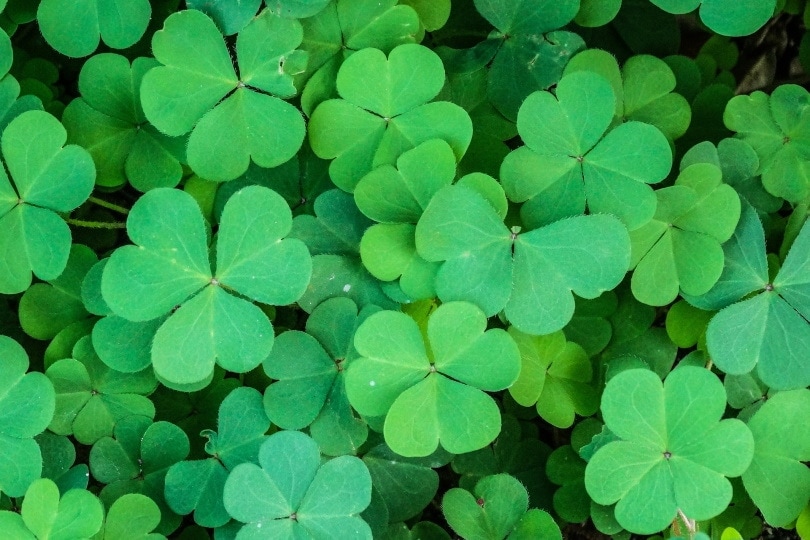
What Do Bearded Dragons Eat?
As omnivores, Bearded Dragons eat a diet that consists partly of plant matter and partly of animal matter. Their protein comes from live invertebrates like crickets, and they also eat a wide variety of greens. The ratio of live food to plant matter changes depending on how old your beardie is—while juveniles eat more insects due to the need for more protein, adult Beardies enjoy a diet heavier in plant matter.
As a basic guideline, young Bearded Dragons eat around 65% live food and 35% greens. Older Beardies’ diets are more around the 50/50 mark. It’s wise to talk this through with your vet to ensure your Beardie’s ratio of animal matter to plant matter is just right for their age.
Food should be dusted lightly with a vet-approved, phosphorus-free calcium powder, as calcium is a very important mineral for beardies. Beardies also need vitamin D3 supplements. We’d also recommend talking to your vet about this because the amount of calcium and D3 you should offer depends on your Beardie’s age and health condition.
Greens and Vegetation
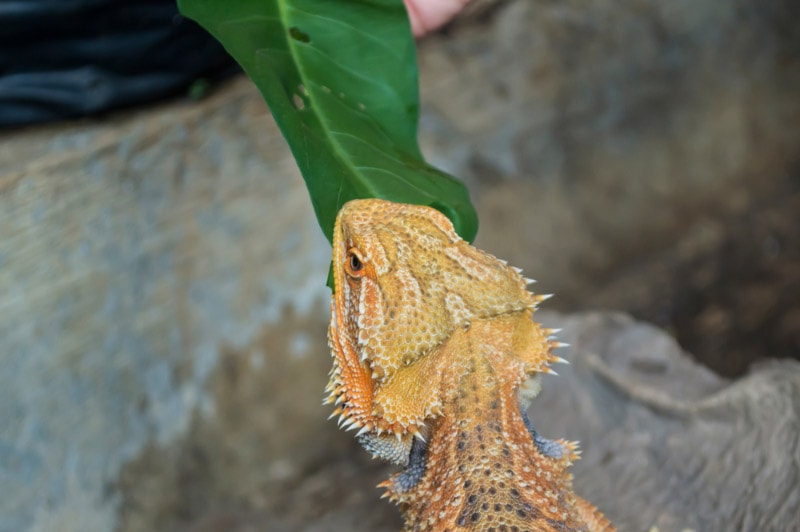
The good news is that you’ll be spoiled for choice when it comes to offering greens to your Beardie because there are so many safe options. Greens should be rotated regularly to offer plenty of variety.
- Turnip greens
- Mustard greens
- Cactus pads (flesh)
- Escarole
- Dandelions
- Chicory
- Rocket
- Clovers
- Plantain leaves
- Bok choy
- Kohlrabi
- Cilantro
- Parsley
- Green beans
- Watercress
Veggies to Be Fed More Sparingly
Some veggies are okay for Bearded Dragons but are best fed in moderation. One example is cabbage because it contains goitrogens, and when fed in excess this can cause issues with the thyroid.
- Kale
- Carrots
- Okra
- Parsnips
- Peas
- Sprouts
- Corn
- Cooked sweet potato
- Cucumber
- Bell peppers
Animal-Based Proteins
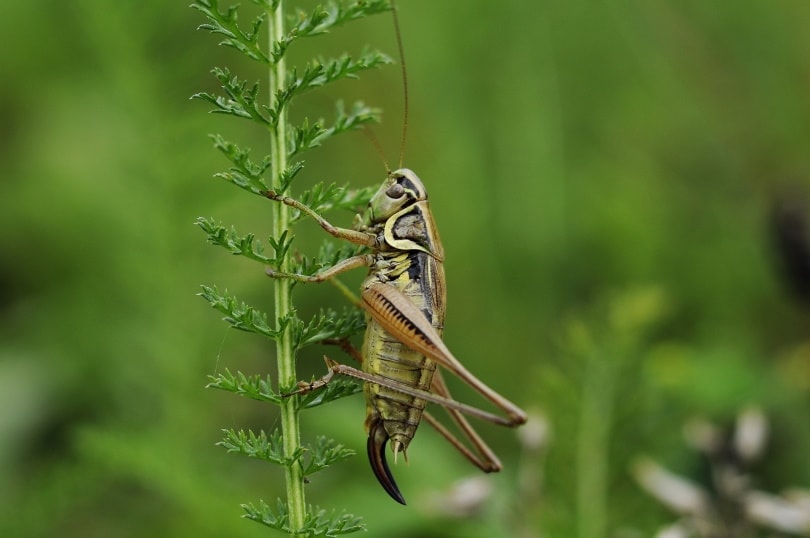
In addition to plant matter, Bearded Dragons eat a wide variety of live foods. It’s best to acquire live insects from reputable sources (breeders or reptile stores) rather than collecting them from outdoors, as wild bugs could be coated in pesticides.
- Crickets
- Dubia roaches
- Mealworms
- Silkworms
- Hornworms
- Locusts
- Wax worms (high in fat—feed sparingly)
- Superworms (high in fat—feed sparingly)
Final Thoughts
Clovers are fine for Bearded Dragons as long as they haven’t been affected by pesticides. That said, it can be tricky to get a Beardie’s diet just right, so it’s important to get an expert’s advice.
When you bring a Bearded Dragon home, one of the first things you should do is make an appointment with a vet who has experience with reptiles. Your vet can talk you through Bearded Dragon nutrition and advise you on the best kinds of foods for your dragon in particular.
Featured Image Credit: bairli1, Pixabay


